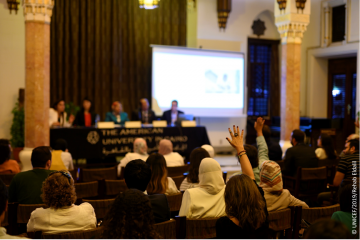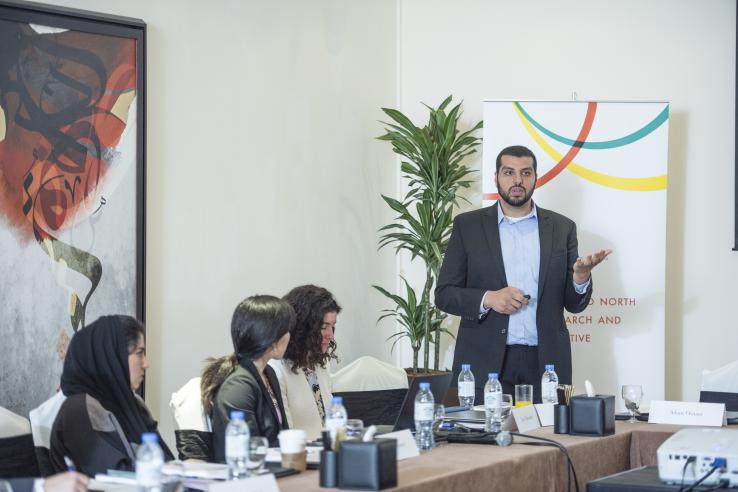
Affiliate Spotlight: Adam Osman

To read the full profile, please download the PDF version here.
Adam Osman is an Assistant Professor of Economics at the University of Illinois at Urbana-Champaign and Co-Scientific Director at J-PAL Middle East and North Africa (MENA). Adam’s work using randomized evaluations to test theories about improving the lives of the poor serves to fill the gap in research on the unique economic landscape of the Middle East and provide the foundations for evidence-driven policy.
Born to immigrant parents in the United States, Adam spent many childhood summers in his parents’ home country of Egypt, where he recognized early on that many of the opportunities he enjoyed in New York were not available to young Egyptian students. When he was introduced to the field of development economics as a graduate student, he decided to dedicate his studies to addressing these striking inequalities.
“There is no difference in the quality of people who live in low-income countries versus high-income countries, but there is a big difference in their outcomes,” he says. “That stark difference always just sticks with me; the tremendous chasm between what we take for granted in everyday life and what many people lack.”
Adam uses randomized evaluations, also known as randomized controlled trials (RCTs), to examine the effectiveness of poverty alleviation solutions in the Middle East and North Africa. He focuses on themes of finance and labor markets, such as youth employment, market access, and financial inclusion. “MENA is one of the most understudied regions in the world, especially when we consider the relatively low number of RCTs,” Adam explains. He goes on to point out that despite strong local efforts and philanthropic interest in poverty alleviation programs, “The region is still in the early days of taking seriously the need for evidence-based policies.”
While Adam has been helping set up J-PAL’s presence in the region since 2014, J-PAL MENA, located at the American University in Cairo, officially opened in 2020 as J-PAL’s newest regional office. J-PAL MENA leads research projects, builds policy partnerships, and assists partners with scale-ups in the region. Adam serves as Co-Scientific Director of the office along with Bruno Crépon (ENSAE and École Polytechnique). Adam oversees randomized evaluations covering a wide range of topics including social protection, education, transportation, and gender, among others.
As Scientific Director, Adam encourages the research staff at J-PAL MENA to take charge of evaluations and develop their skills as independent researchers. “What I am particularly proud of,” he says, “is that we have gone from a situation where every evaluation required really heavy guidance from affiliates to now being able to implement complicated RCTs with minimal input from affiliates because staff capacity has grown so much.”
He hopes that J-PAL MENA will open up new opportunities for researchers to run their own evaluations and use their work for positive change. “Right now, we’re able to open the doors to outside researchers who want to implement high-quality RCTs in the region and have developed the infrastructure to let them hit the ground running. But, my ten-year goal is to help train and support the next generation of local researchers in the region so that they can generate high-quality evidence and answer policy-relevant questions themselves using RCTs,” he says. He also hopes that broadening the existing J-PAL research infrastructure and continuing to build appreciation for the importance of generating high-quality evidence about public policies will encourage prospective scientists, particularly women, from countries in MENA to enter the field of development economics by providing clear avenues for career success.
Adam firmly believes that evidence is necessary for building effective poverty reduction policies. To him, one of the most exciting parts of his work is finding evidence that is sometimes counterintuitive, but he notes that surprising results often provide insight into aspects of the world that we were overlooking. “If we knew the answers, we wouldn’t have to do the research,” he says. “The open questions are what makes this work really exciting.”


